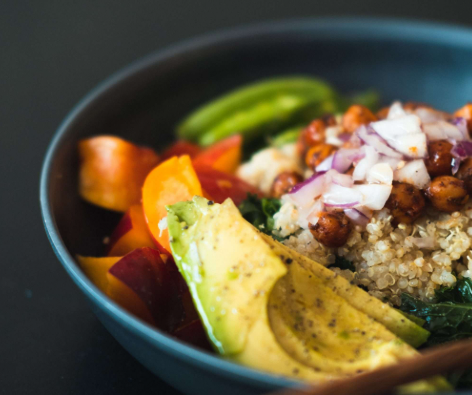
If you or a loved one suffer from gout, you know how painful and disruptive it can be. Fortunately, making simple adjustments to your diet can help prevent gout flare-ups and reduce symptoms. With the right foods and a few lifestyle changes, managing gout becomes easier. Here’s a beginner’s guide to what to eat and what to avoid to keep gout at bay.
What is Gout and How Does Diet Affect It?
Gout is a form of arthritis caused by a buildup of uric acid in the blood, which forms crystals in the joints, often affecting the feet and toes. These crystals cause severe pain, swelling, and tenderness, typically during an attack that can last for several days.
A common dietary consideration for people with gout is purines. Purines are natural substances found in certain foods. When your body breaks down purines, uric acid is produced. Since high levels of uric acid contribute to gout, it’s important to limit purine-rich foods.
Foods to Avoid with Gout
- Alcohol (Especially Beer and Spirits)
Alcohol, particularly beer, is detrimental to gout sufferers for two reasons. First, alcohol strains the kidneys, making it harder for them to eliminate uric acid from the bloodstream. Second, drinks like beer, whiskey, and vodka contain yeast, which is high in purines. - Organ Meats and Wild Game
Organ meats such as liver, kidney, and sweetbreads are packed with purines, making them some of the worst foods for gout sufferers. Wild game like venison and pheasant also contains high levels of purines and should be avoided. - Fish and Seafood
Certain seafood can trigger gout attacks due to high purine content. Avoid fish like anchovies, sardines, and haddock, as well as shellfish like mussels and scallops. However, salmon and crab are generally safer in moderation. - Sugar and High-Fructose Foods
Fructose, a type of sugar found in fruit and sweetened products, can cause gout flare-ups. High-fructose corn syrup, commonly found in sodas and processed foods, is especially problematic because it raises uric acid levels. - Refined Carbs
Refined carbohydrates, such as white bread, pasta, and sugary desserts, have a high glycemic index, which can elevate uric acid levels in the body. Opting for whole grains like brown rice and whole wheat bread can help prevent gout attacks. - Beets (Oxalates)
While beets are low in purines, they contain oxalates, another compound that can increase uric acid levels. Other high-oxalate foods include rhubarb and okra, which should be consumed in moderation by those with gout. - Chocolate
While dark chocolate has anti-inflammatory properties, most store-bought chocolates, including dark varieties, are filled with sugars and high-fructose corn syrup, which outweigh any potential health benefits. Opt for chocolate with minimal sugar content if you’re craving a treat.
What to Eat Instead: Low-Purine Foods for Gout
- Low-Fat Dairy
Low-fat dairy products like milk, yogurt, and cheese can help reduce uric acid levels and are safe for people with gout. Studies show that increasing your intake of low-fat dairy can prevent gout attacks. - Fruits
Most fruits are low in purines, making them an excellent choice for gout sufferers. Berries, cherries, and citrus fruits are especially beneficial. Vitamin C found in citrus has been shown to lower uric acid levels, and cherries have natural anti-inflammatory properties that may reduce gout symptoms. - Vegetables
Most vegetables are low in purines and can be safely included in a gout-friendly diet. Vegetables like asparagus, cauliflower, and spinach have moderate purine content, but they are still fine in moderation. - Nuts and Beans
Nuts are a great source of plant-based protein and healthy fats. They have low purine content compared to animal proteins, making them a good option for gout sufferers. Beans are another excellent source of protein and fiber that won’t increase purine levels. - Eggs
Eggs are a great protein source for those on a low-purine diet. Unlike meat, eggs are not high in purines and can be included in meals for variety and nutrition. - Chicken
Chicken is lower in purines compared to red meats and certain seafood. It can be eaten in moderation as part of a gout-friendly diet. - Coffee
Regular coffee consumption has been linked to lower uric acid levels, which can help prevent gout attacks. The benefits of coffee aren’t due to caffeine but rather the compounds in coffee that help regulate uric acid production and elimination.
Sample Gout-Friendly Meal Plan
Here’s a simple daily meal plan to help you manage gout:
- Breakfast: Start your day with a cup of coffee or tea, paired with whole-wheat toast, scrambled eggs, and fresh fruit like berries or citrus.
- Lunch: A salad with leafy greens, grilled chicken, nuts, and a side of fruit.
- Snack: A handful of almonds or walnuts and some fresh cherries.
- Dinner: Grilled salmon with quinoa and steamed vegetables like broccoli and carrots. For dessert, enjoy a small serving of low-fat yogurt with fresh fruit.
Lifestyle Tips for Managing Gout
- Stay Hydrated: Drinking plenty of water helps your kidneys flush out uric acid more efficiently.
- Exercise Regularly: Regular physical activity helps maintain a healthy weight and reduces stress, both of which can lower the risk of gout attacks.
- Monitor Your Weight: Maintaining a healthy weight can significantly reduce your risk of developing gout or experiencing frequent flare-ups.
Conclusion
By focusing on a diet rich in low-purine foods and avoiding high-purine and inflammatory foods, you can manage gout effectively. Remember to make gradual changes to your diet and lifestyle, and consult your doctor for personalized advice. With the right diet and habits, gout can be managed, and flare-ups can be minimized.










